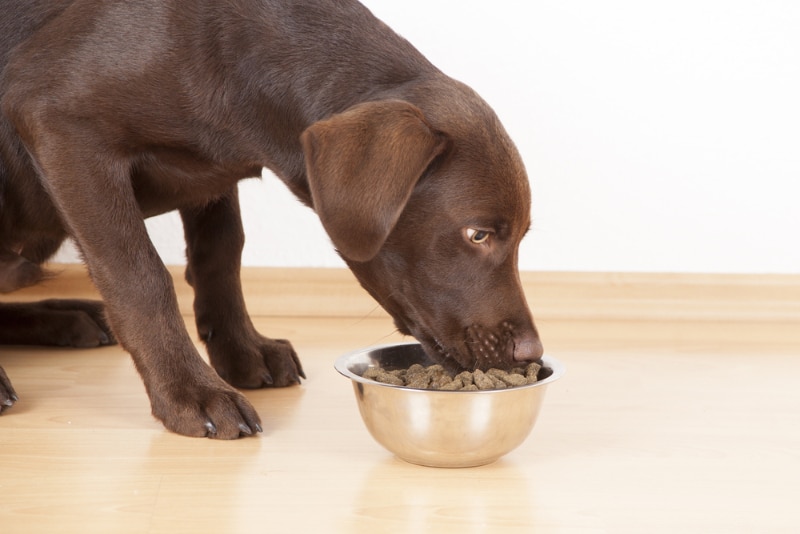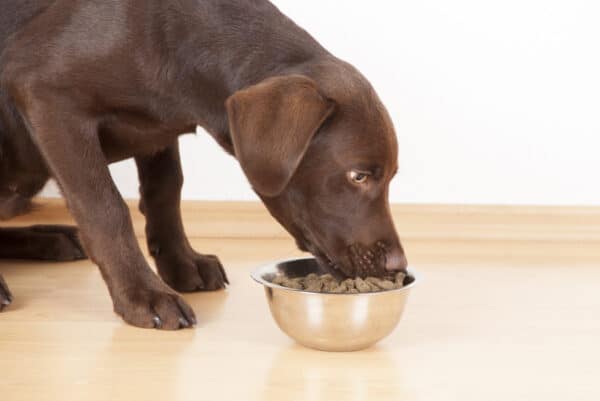Click to Skip Ahead
We all know that seasonings can be extremely dangerous to dogs if they get a hold of the wrong ones. Knowing what’s in your spice cabinet can really help you protect your canine companions from harm.
Keep in mind that anything you aren’t actively using should be put away. Even safe herbs and seasonings can cause negative side effects if your dog eats too much. So, stay informed, stay in control, and call your vet if something gets out of hand. We’ll learn which seasonings dogs can safely have as well as those they can’t in this article.
The 6 Safe Seasonings for Dogs
1. Rosemary
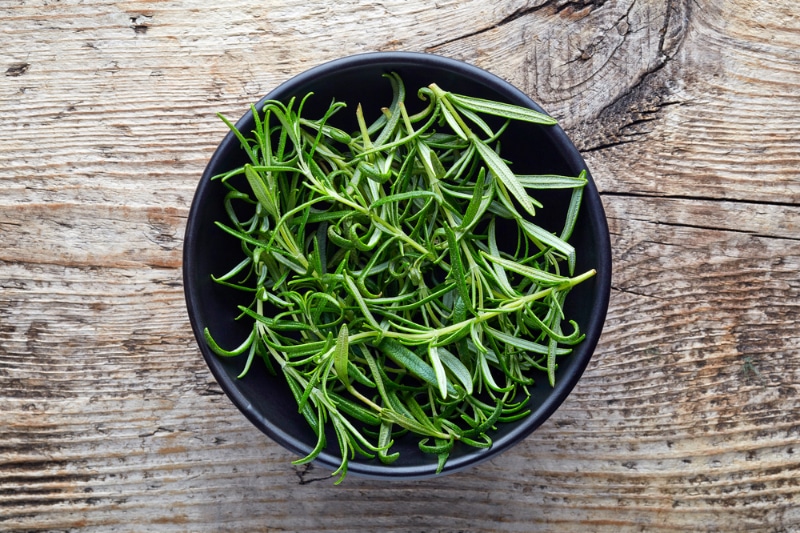
Rosemary is a very safe herb that can be an excellent addition to mealtimes, but it has other uses too! Rosemary is actually a natural flea repellent as well. Just be sure to speak to your veterinarian before using it this way.
- Acts as a repellent
- Is antimicrobial
- Contains antioxidants
- May improve cardiovascular health
- Supports healthy digestion
2. Curly Parsley
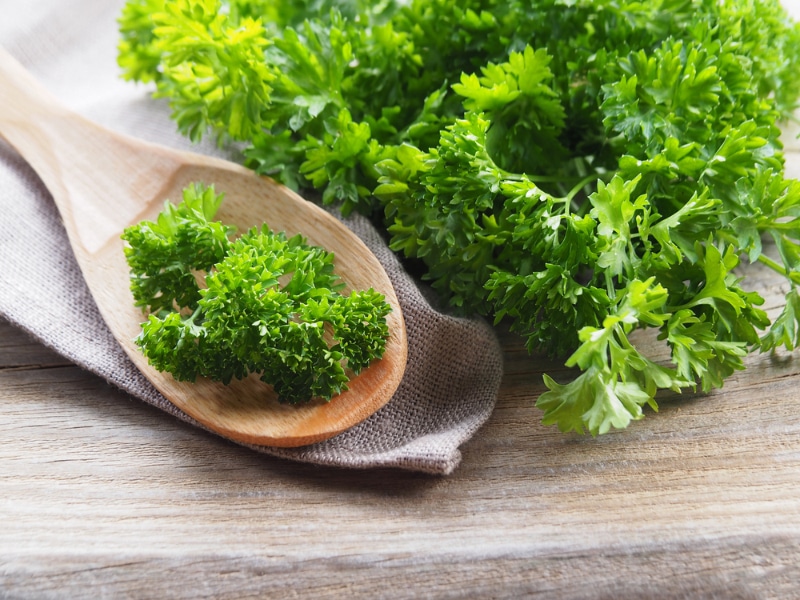
Parsley can be very safe for dogs, but only if it is a specific kind. Curly parsley is the only acceptable type, and the other varieties can carry potential toxins that could endanger your dog’s health.
Spring leaf, flat-leaf, and Italian parsley contain high furanocoumarins, which are toxic to dogs. Stay completely away, and if you don’t know what kind of parsley it is, it’s best to be safe rather than sorry.
Curly parsley can be incorporated in many different treats or foods.
3. Basil
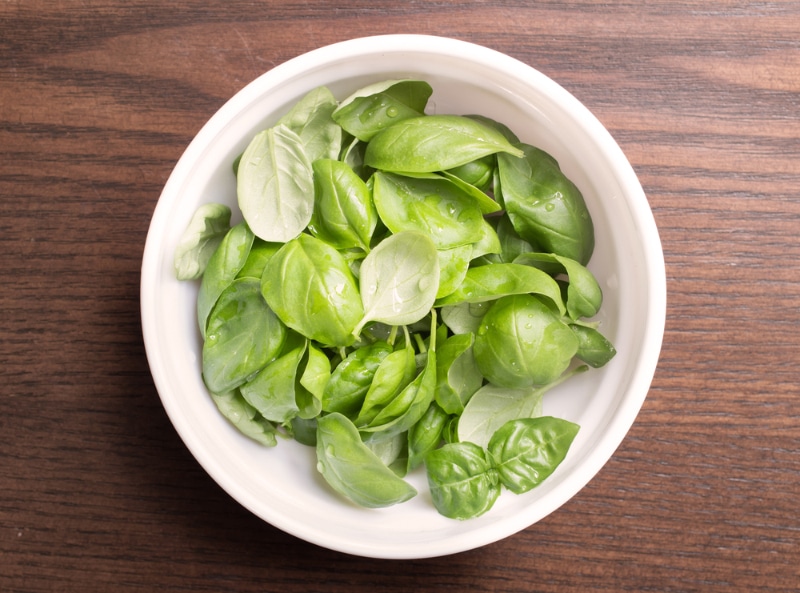
Basil is another safe seasoning to have around your dog. You can even add a few shakes into their food dish. Basil contains very helpful anti-inflammatory properties and high levels of antioxidants.
Basil, when used in moderation, could help prevent illness and cancer by preventing cellular damage. It can also decrease anxiety and joint pain.
- Contains antioxidants
- Increases insulin function
- Supports vision
- Improves energy
You can add basil—fresh or dried—into any doggy dish.
4. Cinnamon
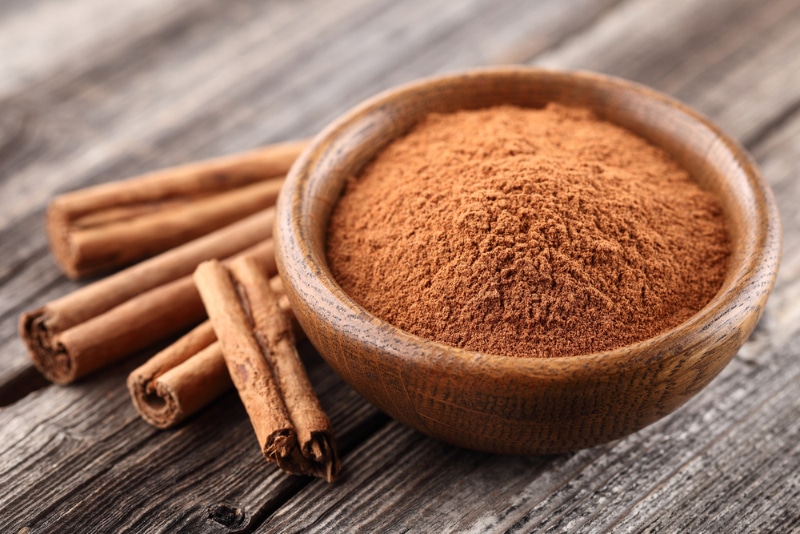
Cinnamon is non-toxic and even beneficial in certain circumstances. However, it can irritate the nasal passages and eyes if it is sniffed or goes airborne in powder form. According to the Pet Poison Hotline, anything more than a teaspoon of cinnamon powder is bad news.1
Overdoses of cinnamon can cause irritation in some pets. Eating too much can lead to vomiting, diarrhea, heart rate changes, liver damage, and low blood sugar.
This means that if your dog gnawed up a cinnamon stick or is extra sensitive to it, it could cause major gastrointestinal distress—so use it with caution.
5. Coriander
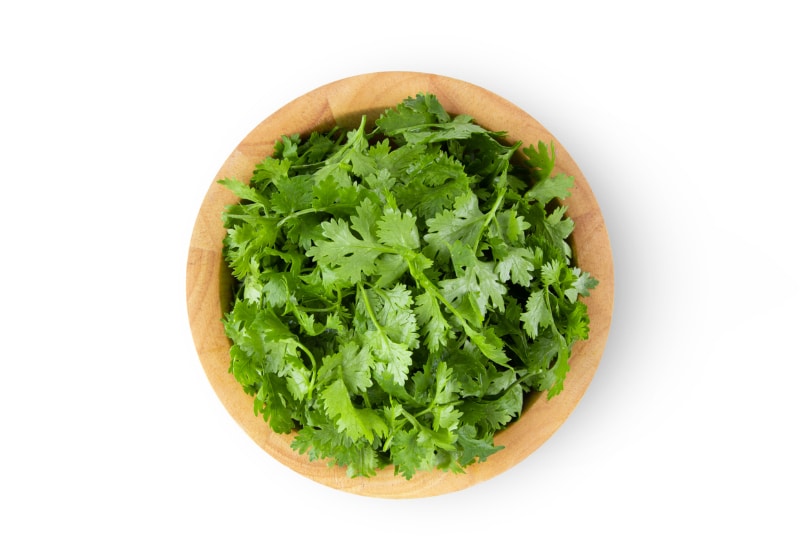
Coriander is another very safe and even beneficial herb for dogs. Coriander has commonly been reported to aid in digestion, which can be helpful for dogs with any type of gastrointestinal problem.
6. Ginger
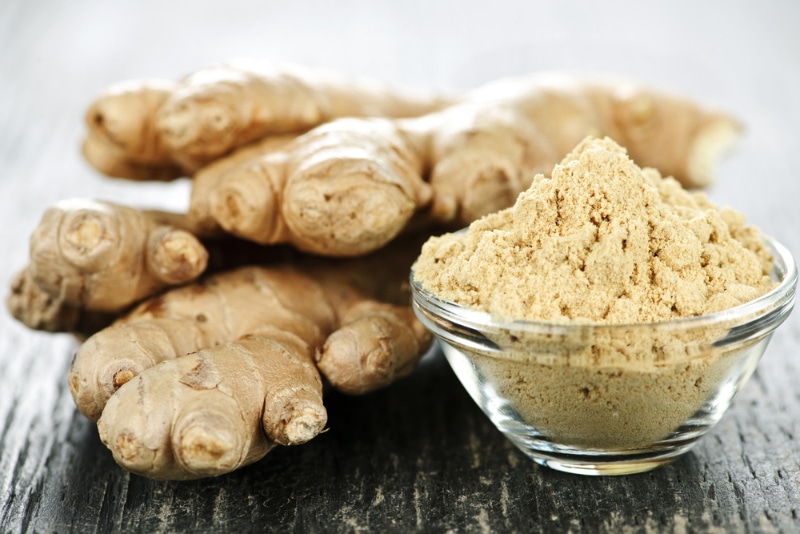
Ginger, in all forms, is perfectly safe for our canine companions. It actually has quite a few health benefits for your dog, permitting they need the extra boost.
- Contains antioxidants
- Is a natural anti-inflammatory
- Decreases gas and bloating
- Stimulates the circulatory system
You can feed your dog ginger root, powder, or even juice. It’s most potent when fresh, but can be enjoyed in any form except pickled. However, if it is fed in large quantities, it can cause gastrointestinal upset.
Since ginger acts as a blood thinner, you should also avoid giving it to dogs that have to take blood thinners.
The 11 Seasonings to Avoid
Knowing all the good seasonings your pet can have is beneficial to everyday care, but what is even more important? Knowing which care is dangerous and which to stay away from. When it comes to dogs, the following seasonings should be avoided.
1. Allspice
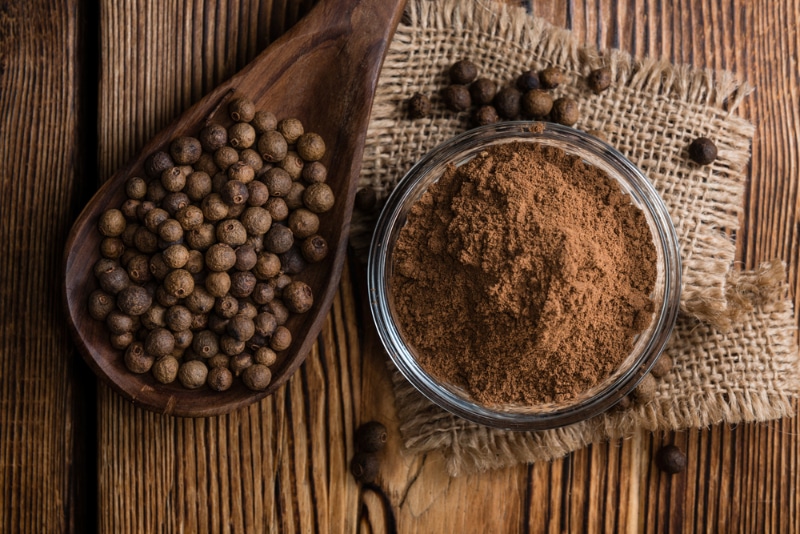
Allspice is a very common spice to have in the cabinet. However, it is toxic to dogs whether it is fresh or in the powdered form.
2. Cayenne
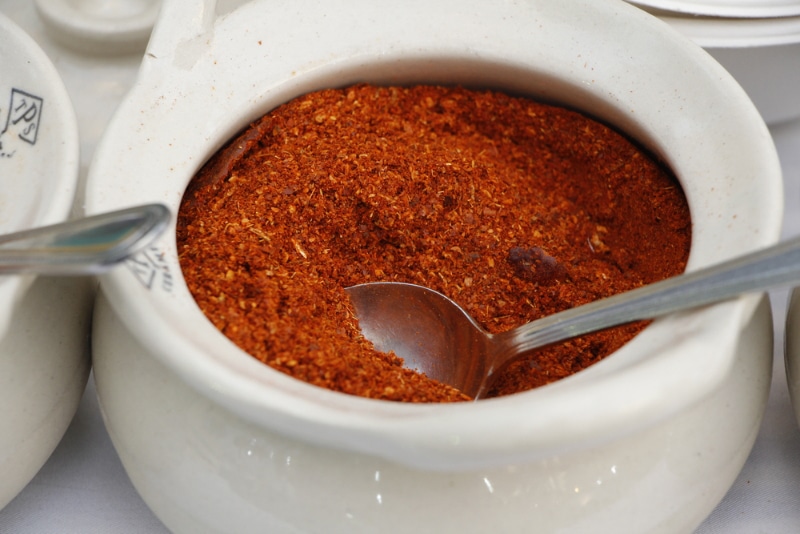
Cayenne pepper isn’t necessarily toxic to dogs, but it can be very problematic. Not only can ingesting cayenne give your pup some major gastrointestinal upset, but it can also irritate the nasal passages and eyes.
3. Oregano
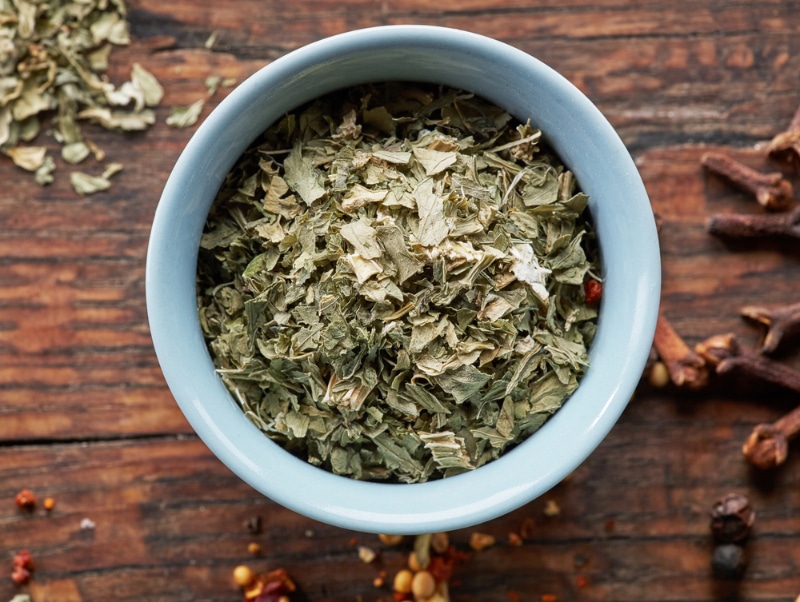
Oregano is only mildly toxic to dogs in large enough amounts. It causes brief gastrointestinal upset, but the effects don’t linger long. Thankfully, oregano consumption is not a medical emergency, but it can cause some discomfort for your pup.
4. Cocoa
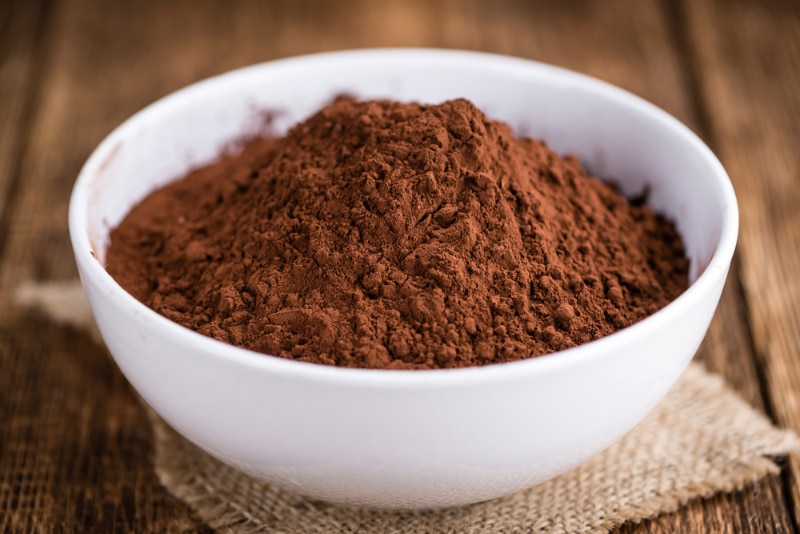
We all know that chocolate is toxic to dogs. Cocoa is even more concentrated in powder form and can wreak havoc on a dog’s system. Keep the cocoa and cocoa powder away from the food bowl.
Cocoa and cocoa powder contain theobromine. This powerful substance can result in toxicity, causing major symptoms like rapid heart rate, tremors, diarrhea, seizures, and in extreme cases, death.
5. Allium Plants
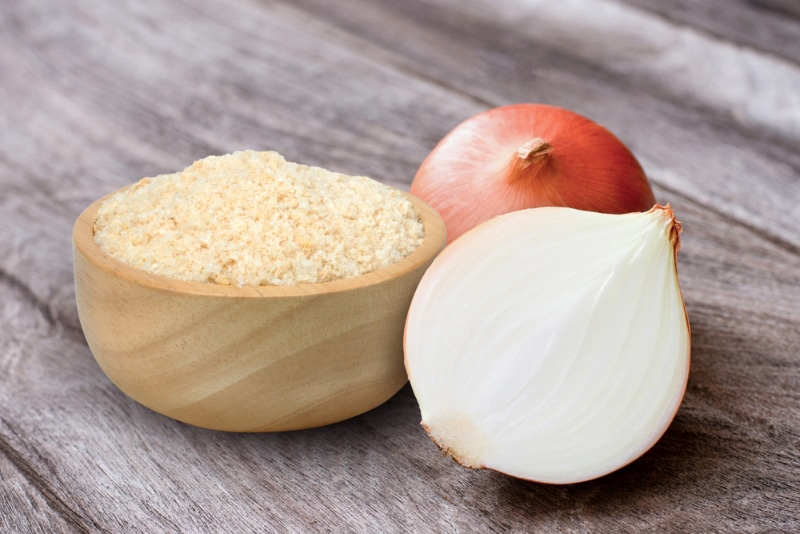
Plants in the allium family include garlic, onion, and leeks. These dangerous plants can be extremely toxic to dogs—and they are unfortunately very accessible.
Some dogs are more sensitive to, say, chives, than other dogs. Certain Japanese breeds like the Akita and Shiba Inu can be particularly susceptible to reactions.
6. Hops
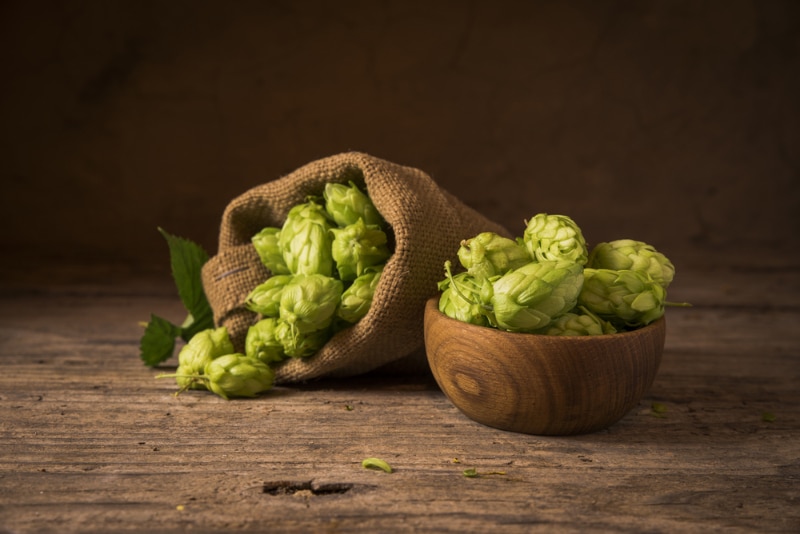
While hops are a necessary component to beer, they should never be accessible to your dog. After ingestion, hops may also cause a condition called malignant hypothermia. It causes your pup’s body temperature to escalate tremendously.
This life-threatening condition can also cause panting, vomiting, diarrhea, agitation, and tachycardia.
7. Marjoram
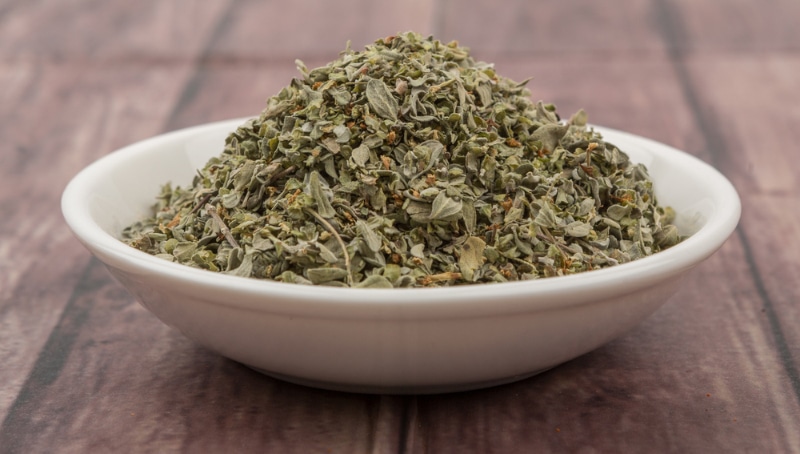
Marjoram is toxic to dogs, causing major gastrointestinal upset if consumed. It can not only cause vomiting, diarrhea, and excess salivation, but it can also cause bradycardia and low blood sugar. The outcome can be negative if it isn’t treated promptly.
8. Mustard
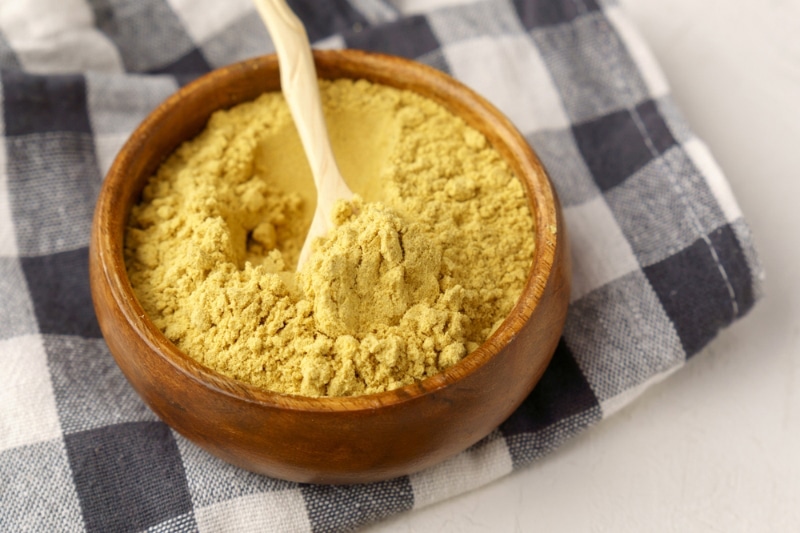
Mustard and mustard seed or powder is completely toxic to dogs. If your dog consumes it, it can cause vomiting and diarrhea.
9. Nutmeg
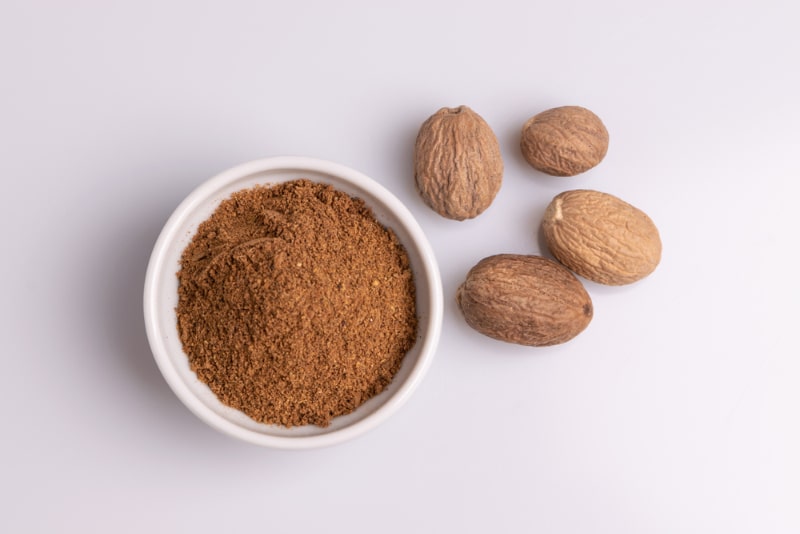
Nutmeg contains a toxin called myristicin. Even though small amounts of nutmeg usually only cause mild gastrointestinal upset, large amounts can result in major symptoms like hallucinations, disorientation, tachycardia, dehydration, seizures, abdominal pain, and high blood pressure.
10. Pumpkin Pie Spice
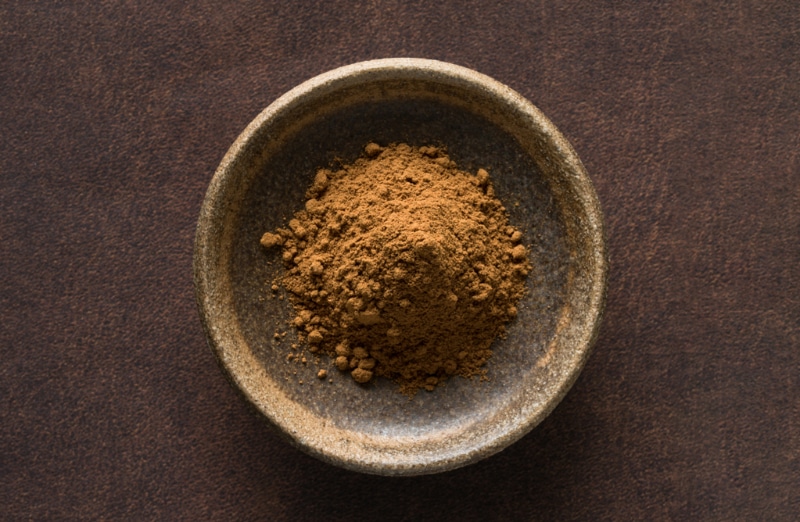
Pumpkin pie spice has a plethora of components that are no good for puppies! It has a combination of allspice, nutmeg, and other spices. So, it is a cocktail of things your dog shouldn’t have.
11. Bay Leaf

Bay leaves are a very healthy additive to human diets—but they, unfortunately, contain eugenols and essential oils that can prove toxic to dogs. It’s best to keep these leaves out of reach.
Call Your Vet
If your dog has eaten any spice and you’re genuinely concerned, call your vet or poison control right away. Even if it is perfectly safe, it’s still best to cover your bases when you aren’t sure. Spices and seasonings can be very tricky.
Remember that adding herbs into your dog’s diet can be dangerous if you don’t use the appropriate measurements. Even if an herb is considered safe, it might still have its drawbacks.
If you need urgent veterinary advice, consult a vet online.
If you need to speak with a vet but can’t get to one, head over to PangoVet. It’s an online service where you can talk to a vet online and get the personalized advice you need for your pet — all at an affordable price!


Conclusion
Now you know a bit more about which seasonings are suitable—and the ones to really watch out for. Things like seasonings can be so tricky to learn, so make sure you check and double-check safety with your veterinarian.
There is a lot of misinformation out there, and the safety of your pets can be at stake. When in doubt, ask your vet!
Also Read:
- 5 Herbs That Are Good for Dogs: Vet-Verified Safety & Benefits
- Can Dogs Eat Pesto? Vet Approved Facts & Safety
Featured Image Credit: Nicole Lienemann, Shutterstock

